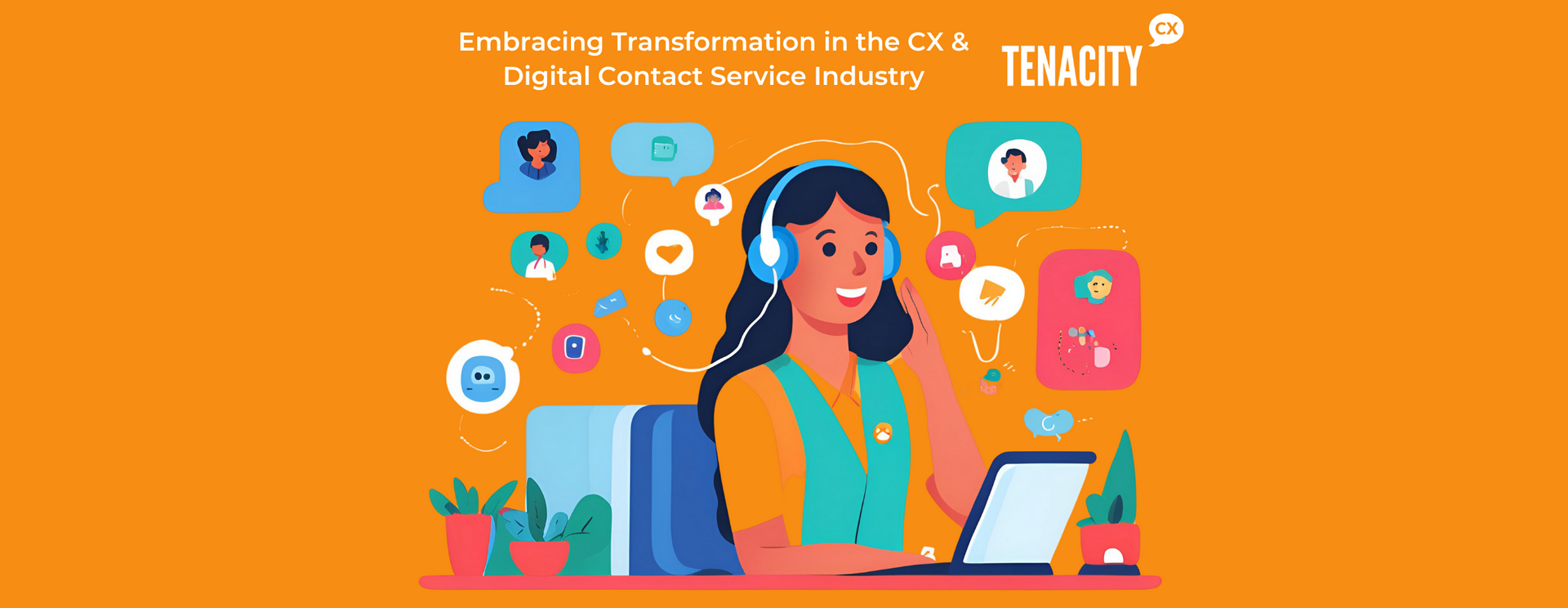The CX & Digital Contact Service Centre industry is undergoing a significant transformation fueled by rapid technological advancements, especially in big data, cloud computing, and artificial intelligence (AI). This shift is driven by the need to innovate continuously to meet the changing demands of customers, manage high attrition rates, and navigate the industry's inherent fluctuations.
1. Technological Innovations Enhancing Efficiency and Personalisation
Technologies such as voice recognition, SMS, and omnichannel platforms have revolutionised contact centres. These innovations have not only enhanced operational efficiency but also personalised customer interactions, significantly boosting overall customer satisfaction. Today, omnichannel customer service strategies, AI-driven chatbots, and advanced analytics are becoming the norm, enabling companies to understand customer behaviours and preferences better.
2. The Imperative of Upskilling and Workforce Transformation
As AI and automation become integral to the industry, there is a critical need to upskill the workforce to ensure they remain relevant in this evolving landscape. The potential impact of AI on the workforce is significant, with predictions suggesting that up to 45% of jobs may be displaced. However, this also presents an opportunity to retrain, redeploy, and retain talent for the jobs of the future.
3. Adapting to AI: Learning Agility and Lifelong Learning
The effectiveness of generative AI relies heavily on human input, whether for drafting emails or making complex financial forecasts. This shift necessitates a reinvention of work processes to be more human-centric. It underscores the importance of lifelong learning and developing key skills such as adaptability, analytical thinking, and resilience. Only 7% of organisations are actively reskilling their workforce at scale, highlighting the urgency for companies to invest in training programs.
4. Government Initiatives and Educational Programs
Government initiatives and educational programs play a crucial role in upskilling the workforce. Initiatives like the Centre of Excellence for Microsoft, TAFE's free programs, and other vocational training opportunities are essential in raising IT literacy and preparing the workforce for the future.
5. Combating Fear of Technological Change Through Education
The uncertainty surrounding new technologies can evoke fear among employees. One of the best ways to combat this fear is through education and involvement. Companies that actively engage their employees in learning about AI and its applications will be better positioned to create value and drive innovation.
6. Key Skills for the Future
The top skills required for the future include analytical thinking, complex problem-solving, critical thinking, creativity, leadership, and technology use. These skills reflect the changing landscape of work and emphasise the need for a blend of cognitive and interpersonal abilities.
7. Tenacity CX's Commitment to the Future Workforce
Tenacity CX is dedicated to sourcing, training, and retaining digitally skilled candidates equipped with future-demand skills. We understand the importance of ensuring excellent customer satisfaction and personalised customer journeys. By focusing on adaptability, learning agility, resilience, and critical thinking, we prepare our workforce to thrive in today's fast-paced, AI-enabled digital contact centre and CX environments.
For more information on ‘Breaking Out of the Contact Centre click here for the
White Paper
Breaking Out of the Contact Centre: Click Here

In summary, the CX & Digital Contact Service Centre industry is at the forefront of technological transformation. Companies must navigate these changes by investing in technology, upskilling their workforce, and fostering a culture of continuous learning and innovation. The future of customer experience lies in the seamless integration of AI and human ingenuity, driving business growth and exceptional customer satisfaction.

